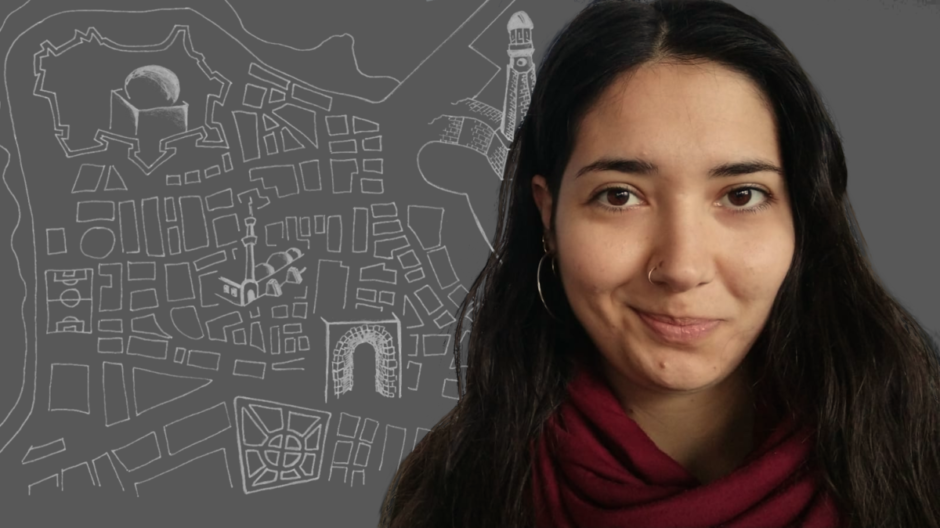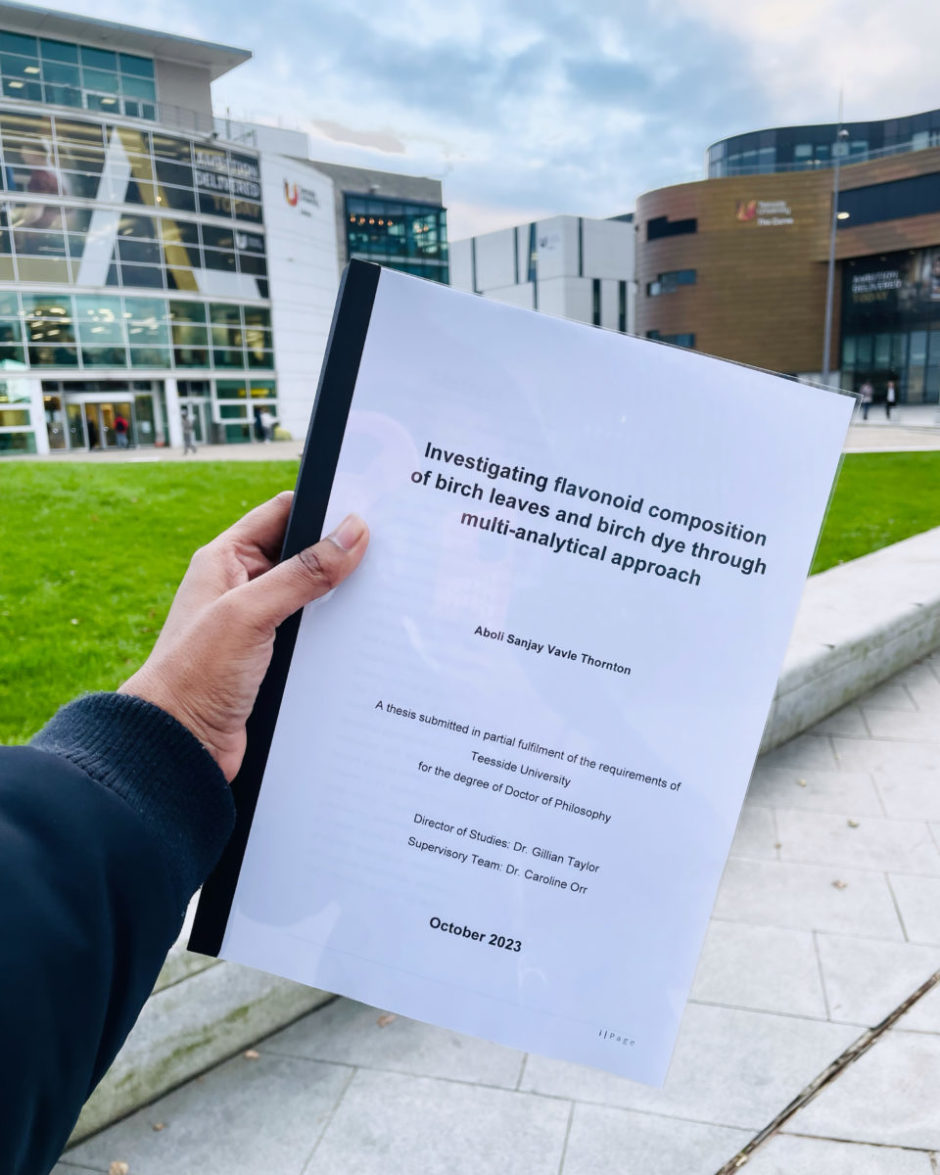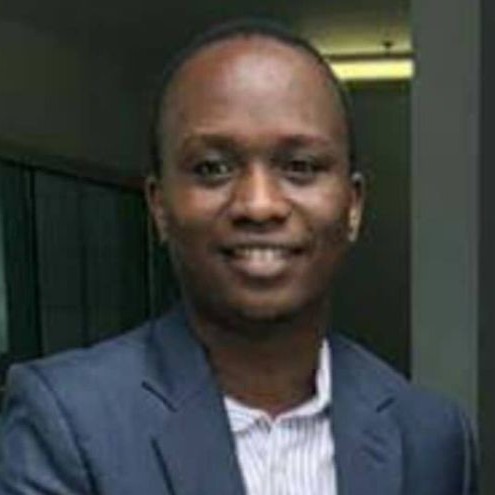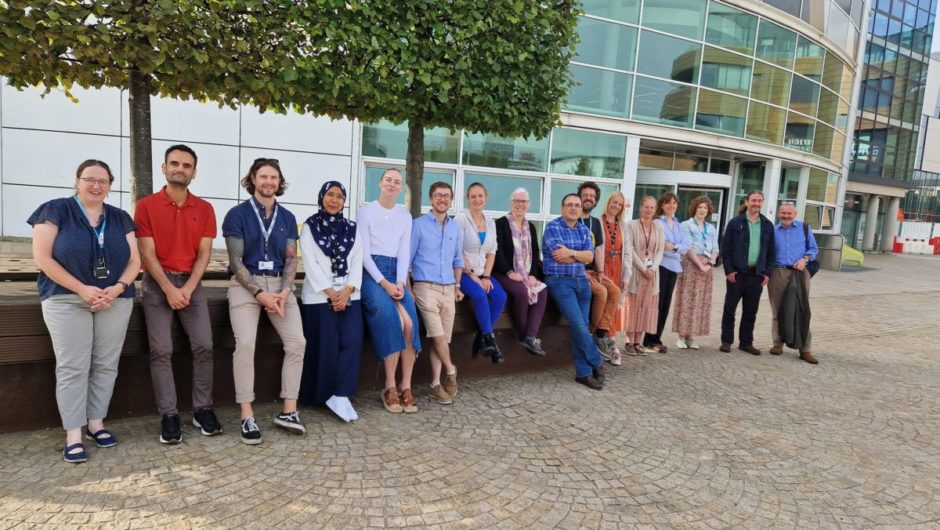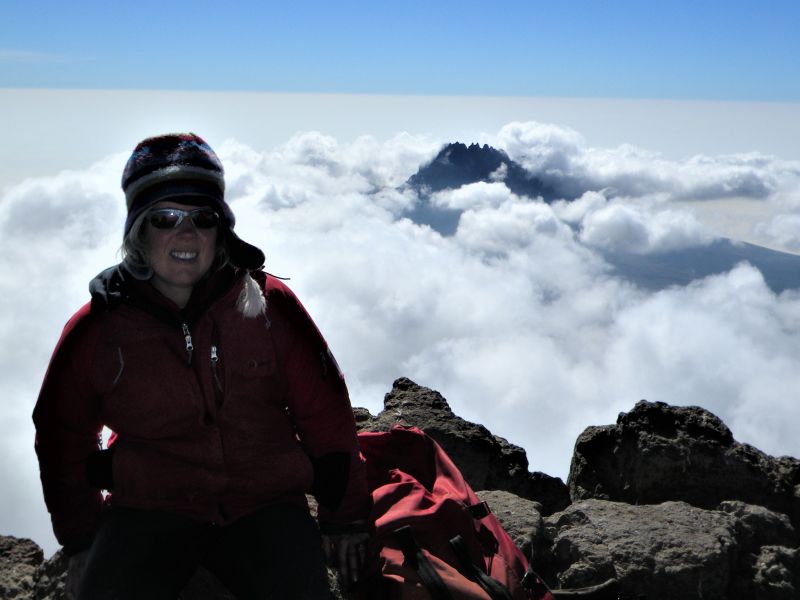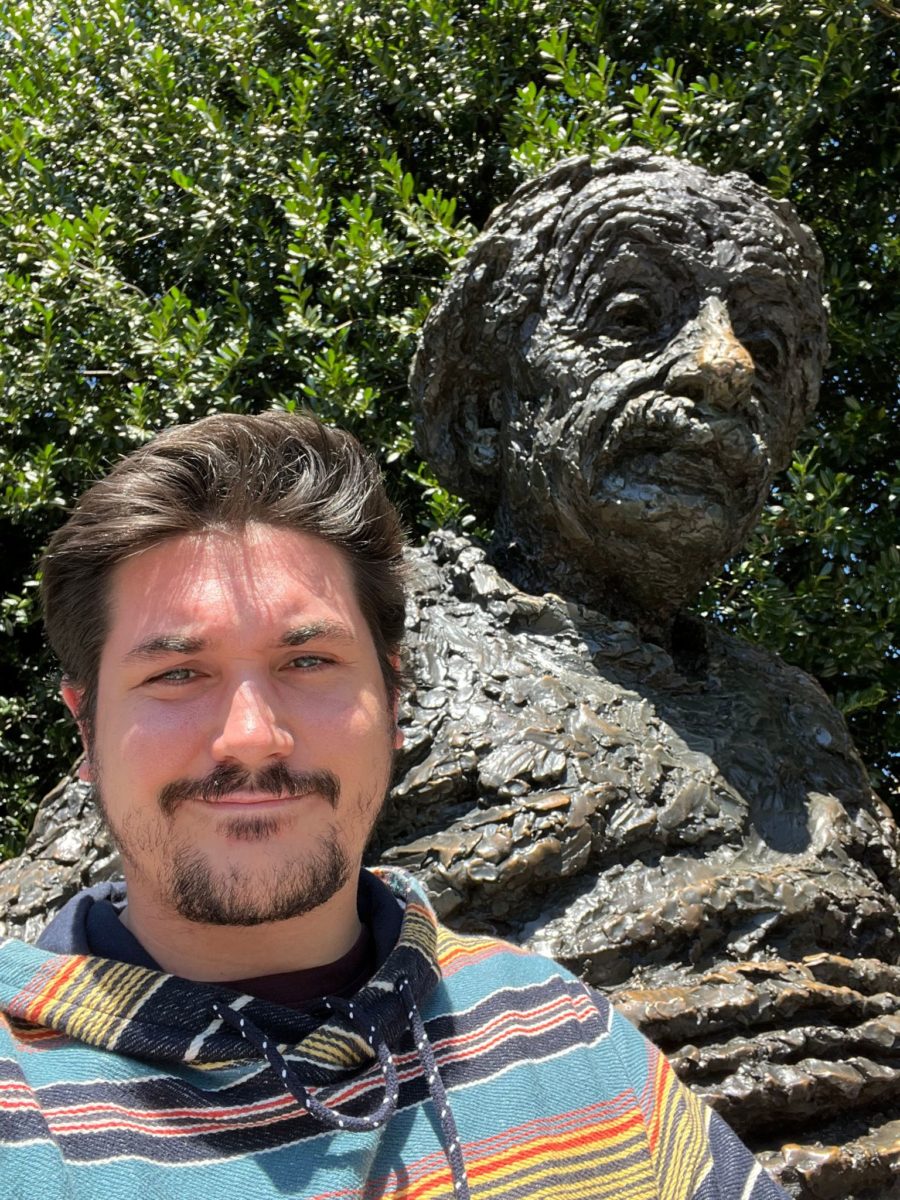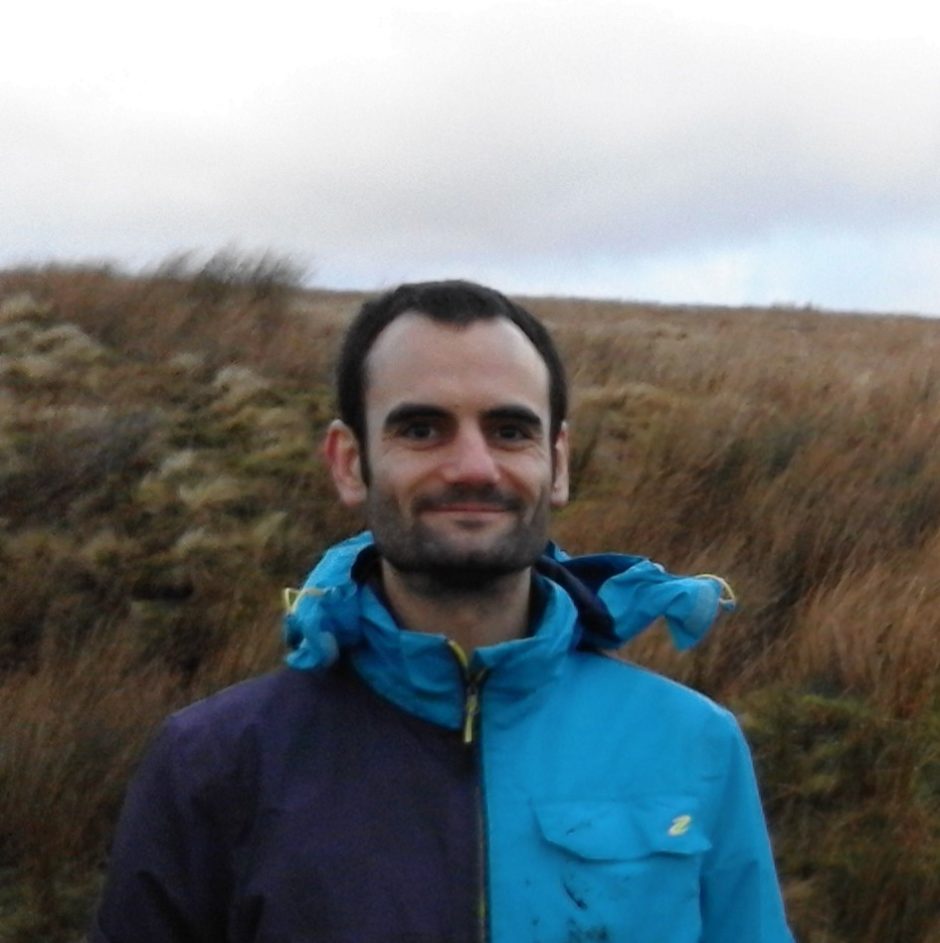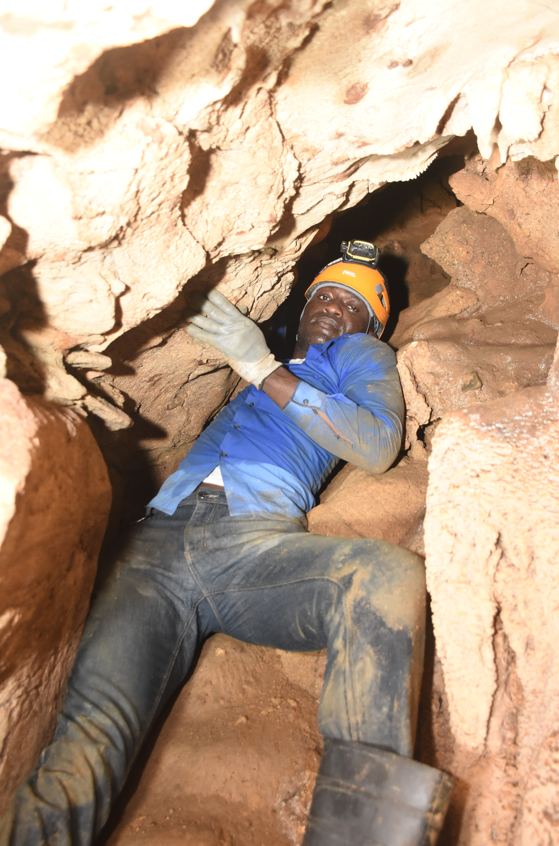I am a palaeoclimatologist with a special interest in micropalaeontology, using microfossils, such as dinoflagellates and pollen, to reconstruct past oceanographic, terrestrial and climatic changes. More recently, I have expanded my research into vegetation reconstructions using pollen in speleothems (e.g. stalagmites). I am particularly interested in time periods in Earth history that were warmer than present in order to gain insights into environmental changes under continued future warming.
Category: People – joining
New staff member – Welcome Dr Danai-Maria Kontou
Danai is a lecturer and a researcher in human geography, with special interests in Polar Geography, Cartography and Creative Methods. Danai graduated with a Geography B.Sc. from the University of the Aegean and later has been a full scholarship grantee for the Cartography MSc (T.U. Munich, T.U Vienna, T.U. Dresden, and University of Twente). For her master’s thesis, she developed innovative three-dimensional visuals in cylindrical form for the time and space illustration of the anomalies of ice and vegetation in the Arctic. Her thesis has been published in the Journal “Regional Studies Regional Science”. She continued her academic journey with a PhD in Durham University, fully funded under the DurhamArctic Research Centre for Training and Interdisciplinary Collaboration. For her PhD “Arctic Cartographic Uncertainties”, Danai experimented with creative methods and art-science practices. Her current research interests include spatiotemporal analysis of environmental phenomena, story-map-telling, art-based research, along with her great enthusiasm on polar geography, remote sensing, and data visualisation.
In Teesside she is teaching: “Human Geography and Globalisation” and “Interpreting Environments”.
Introducing Dr. Aboli Vavle (Finally)!
The team are wonderfully proud of Dr Aboli Vavle this week, on passing her viva.. here is her story..
I can’t believe I am writing this blog post. It still hasn’t sunk in to be very honest, but it gives me great pleasure to finally say that I’ve passed my PhD viva with some great comments from my examiners. On 8th January 2023 at 1:30pm in the afternoon (not to forget in a freezing cold room), I was called in for my viva. My examiners greeted me with a very warm smile and excitement. I walked in with confidence but was nervous at the same time. My external told me at the start of the viva that ‘Please relax and take your time to answer and if we’re asking follow up questions, we’re only asking them to understand a bit more from you’. That did calm me down a bit.
And so it began! I was asked so many chemistry questions regarding the structures and bonds and formulas. I tried to answer them to my best ability. Anything that I was not sure of, I was being 100% honest and was calmly letting them know and both my examiners were very kind and helpful in making me understand anything that I wasn’t sure of. By 3:30pm, we were only on 90/228 pages. I remember walking out to stretch my legs and thinking, we haven’t even got to my actual results yet and that got me a bit more nervous. But I calmed myself down and reassured myself that it is my work and all I need to do is answer to my best potential. I went back in and we started the viva again and this time I was a bit more confident in answering as the questions were more related to my actual samples. Funny thing is I didn’t get asked many questions about my actual work, because when reading the thesis the examiners said that they themselves could see how novel the work was. My external examiner asked me, ‘Do I like underselling my work?’. I nervously laughed and he continued ‘it’s done with such precision especially the chromatograms. You need to highlight it a bit more’ and that made me very happy. My internal examiner also said that they found the tables of all the case studies very helpful and that made me even happier. Around 5:20pm, the viva was concluded and I was asked to wait outside.
Those 10 minutes were the hardest 10 minutes of my entire life. I was called in by the chair and I sat down. The external examiner said ‘We have decided to pass you. Congratulations Doctor’. As soon as I heard that, I had tears rolling down my cheeks, I said ‘Thank you’ in a squeaky voice and I apologised and they said ‘you don’t need to because we understand what a PhD student goes through’. They said they enjoyed reading my work and that was the reason they kept asking me questions for 4 hours! They also said that my thesis was very easy to read and follow. I thanked them for taking time to read my thesis and their valuable feedback. We showed the examiners around the NHC labs and I thanked them once again for the day. Also, just want to take a moment here to thank Dr. Gillian Taylor, my Director of Studies and Dr. Caroline Orr, my supervisor because I don’t think I would have been able to do any of this without their help and support.
Back to Newcastle around 7:30pm, all I wanted to do was to hug my husband (who now has to call me Dr. Wife), have a glass of chilled Cuba Libre, eat some Poutine and go to bed. It was a very tiring but a wonderful day that I will remember for the rest of my life.
Welcome – New lecturer Dr Oluseye Oludoye
Dr Oluseye Oludoye currently serves as a Lecturer in Environmental Science at Teesside University, UK, where he is dedicated to the trifecta of education, research, and administrative roles. His primary research interests revolve around pro-environmental behaviour, with a keen focus on effective waste management and promoting agricultural sustainability. Before joining Teesside University, he had the privilege of being a postdoctoral research fellow at Chulalongkorn University in Bangkok, Thailand. There, he delved deep into researching pro-environmental behaviour of single-use plastic waste management.
With over a decade of experience, he had the opportunity to work across various sectors as an agri-environmental researcher, educator, and consultant. He had successfully executed funded research projects and shared his insights at international conferences, workshops, and seminars.
His dedication to research is reflected in my authorship of several publications in esteemed international journals. He has received numerous honours and awards throughout his career, including a Scholarship Award from the United Nations University-Institute for the Advanced Study of Sustainability (UNU-IAS), Tokyo, Japan, in 2019. He recently received the prestigious Swiss Government Excellence Scholarship (2023) which bolsters my commitment to advancing sustainability on a global scale.
Earth and Environment Group photo
Before the start of the new academic term, the Earth and Environment team has a lovely get together, discussing the exciting plans for the year ahead.
left to right..
Dr Gillian Taylor (group lead), Dr Ernesto Saiz val, Dr Craig McBeth, Dr Haliza Hassan, Amy Burgess, Dr Rhys Williams, Dr Becki Scott, Dr Lisa Baldini, Dr Pablo Cubillas Gonzalez, Dr Ambroise Baker, Dr Caroline Orr, Dr Desire Dalton, Alison Reid, Dr Kerry Pettigrew, Dr Chris Ennis, Dr David Wright.
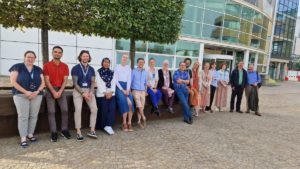
Promotion – Associate Professor Lisa Baldini
We are excited to announce a recent promotion in our team, Dr Lisa Baldini is now an Associate Professor. Lisa specialises in palaeoclimate and environmental geochemistry research.
Lisa has recently led an expedition to Gabon, funded by National Geographic Explorer Level II Grant to explore West Africa for stalagmite-bearing caves and generate the region’s first-ever stalagmite palaeoclimate reconstruction
Congratulations
Promotion – Associate Professor Jamie Bojko
We are excited to announce a recent promotion in our team, Dr Jamie Bojko is now an Associate Professor. jamie specialises in invertebrate pathology, including histopathology, molecular diagnostics and metagenomics.
Jamie is currently at presenting his research work at the society of invertebrate pathology
Congratulations
Welcome new lecturer – Dr Pablo Cubillas Gonzalez
This month we welcomed Dr Pablo Cubillas Gonzalez to the Environmental team – you can see his bio here – Meet the Academic Team – TU Earth and Environment (tees.ac.uk)
Welcome new Lecturer: Dr Ernesto Saiz
This week we welcomed Dr Ernesto Saiz to the environmental team – you can see his bio here – Meet the Academic Team – TU Earth and Environment (tees.ac.uk)
Looking for stalagmites
Recently, one of our PhD students – Fatai Ilesanmi has been on field trip.. Nigeria Field Expedition in the month of March and April 2023
Nigeria National Geographic expedition phase 1. This is a caving expedition to identify and map stalagmite-bearing caves in Nigeria (initial reconnaissance expedition).
The photograph shows Fatai exploring Itankpini cave and looking for stalagmites in hiding entrances



